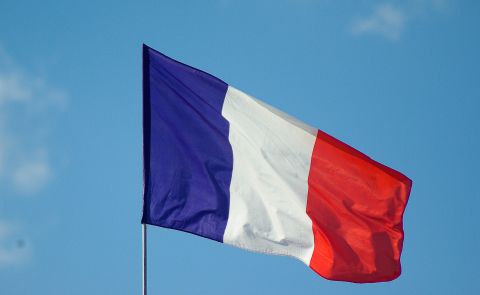
The end of the Nagorno-Karabakh war?
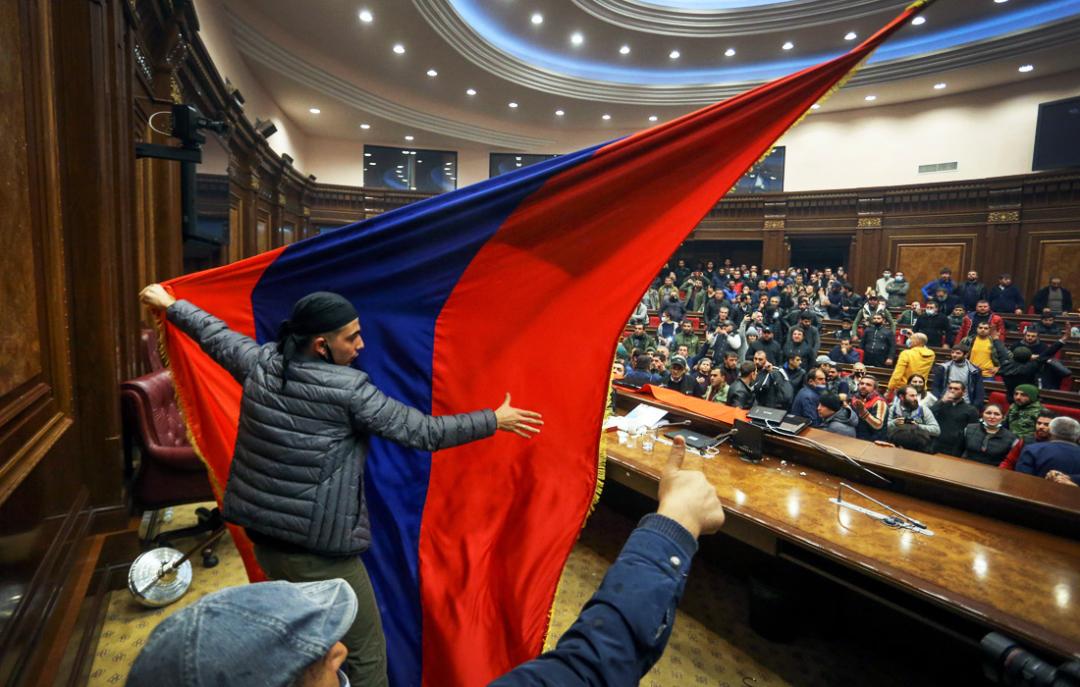
On 9 November, Russia’s President Vladimir Putin, Azerbaijan’s President Ilham Aliyev and Armenia’s Prime Minister Nikol Pashinyan signed a joint statement on a complete ceasefire in Nagorno-Karabakh.
The agreement between the three leaders foresees that Aghdam district will be returned to Azerbaijani control before 20 November 2020; the Kalbajar district before 15 November 2020 and the Lachin district before 1 December 2020, while retaining the Lachin corridor (5km wide), which shall allow a connection of Nagorno-Karabakh with Armenia and shall not affect the city of Shusha which is controlled by Azerbaijan.
In addition, along the entire contact line in Nagorno-Karabakh and along the Lachin corridor, a peacekeeping contingent of the Russian Federation shall be deployed in the amount of 1,960 military personnel with small arms, 90 armoured personnel carriers, 380 units of automobile and special equipment. The peacekeeping contingent of the Russian Federation shall be deployed in parallel with the withdrawal of the Armenian armed forces. The peacekeeping contingent of the Russian Federation shall be deployed for a period of five years with automatic extension by further five-year periods if none of the Parties [Armenia and Azerbaijan] declares six months before the expiration of the period of its intention to terminate the application of this provision. The agreement also foresees the return of internally displaced persons and refugees under the control of the United Nations High Commissioner for Refugees, as well as the exchange of prisoners of war and other detainees and bodies of the dead.
Further, all economic and transport links in the region shall be unblocked. The Republic of Armenia shall provide for transport communication between the western regions of the Republic of Azerbaijan and the Nakhchivan Autonomous Republic in order to organise unhindered movement of citizens, vehicles and goods in both directions. Control over transport shall be exercised by the bodies of the Border Guard Service of the Federal Security Service of Russia. The construction of new transport communications linking the Nakhchivan Autonomous Republic with the western regions of Azerbaijan shall also be provided.
Putin expressed his hopes that the decision set out in the joint statement would not only put an end to the many years of confrontation between Armenia and Azerbaijan, but also create reliable mechanisms to exercise control over the agreements. Putin’s spokesperson Dmitry Peskov said that the agreement marks a victory for the people of Armenia and Azerbaijan. Peskov added that the US and France did not participate in the negotiations of the agreement. The Kremlin spokesperson also insisted that there would be no Turkish peacekeepers deployed in Nagorno-Karabakh. He also emphasised that the creation of a centre in Azerbaijan to monitor the ceasefire in Nagorno-Karabakh would require a separate agreement in order to be implemented.
Aliyev stated that he was “very glad” that an end is being put to the long-term conflict between Armenia and Azerbaijan and that an end is being put to the occupation of Azerbaijani lands. “We have reached a settlement that I believe meets the interests of the peoples of Azerbaijan, Armenia and countries of the region,” he stated.
Azerbaijan’s opposition Republican Alternative Party (ReAl) released a statement in which they stated that while the agreement grants Azerbaijan “general advantages” it does not equate to a “complete victory.” They criticised the agreement for not clearly stipulating the full restoration of Azerbaijan's territorial integrity, not establishing governance and legal relations in the territories that will remain occupied after 1 December on the basis of Azerbaijani law, and for not ensuring the rights of all people on all territories of the conflict.
While addressing his nation, Pashinyan stated that he signed the agreement based on a recommendation from Armenia’s armed forces. He said that after assuming the post of Armenia’s Prime Minister and looking deeper into the status of the Nagorno-Karabakh negotiations, he had to tell the people that Armenia was to return 5 districts without specifying the status of Nagorno-Karabakh or there would be a war. “Why didn't I say it earlier? Because I believed that we could fight. I tried to do my best. If I had said, the Armenian society would not agree to peace in exchange for 5 districts, and after the start of the war, it would have been not 5, but… 7 districts. Why was no decision made at one of the stages? We wanted to turn the tide. A painful decision was made when it was already obvious that we did not have the opportunity to turn the tide of the war. We were tasked with avoiding the worst,” he added. “What is left to us in this situation? Concentrate on strengthening Armenia and Nagorno-Karabakh economically, intellectually, in the field of education... We fell, but did not kneel, we stood to the end, to the last line and made a decision… so as not to fall into the abyss,” he concluded. Pashinyan also called on all Armenian citizens who believe in him to get ready for a fight, following the declaration of 17 political parties in the country for his resignation due to his handling of the war in Nagorno-Karabakh.
Armenian protesters stormed the government building Tuesday night immediately after a peace deal was announced. According to them, they are not going to surrender the lands. There were scenes of chaos. A clash took place between Armenian parliament speaker Ararat Mirzoyan and these protesters near the government mansions.
The de facto President of Nagorno-Karabakh Arayik Harutunyan called the truce a necessary step to save the republic. Among the reasons, he pointed out that during 43 days of hostilities the Armenian forces lost several regions - Fizuli, Jabrayil, Kubatlu, Zangelan, Hadrut, part of Martuni, Askeran and, most importantly, Shusha. “The fighting continued on the outskirts of Stepanakert at a distance of 2-3 km. If the fighting continued at a similar pace, then within days we would have lost all of Karabakh and would have had more casualties, since the fighting, having moved to the rear, would have irreversible consequences for the frontline, where our forces are heroically fighting for 43 days, especially our conscripts. If we lost Stepanakert/Khakandi, what would become of the soldiers on the front line in the Askeran and Martuni area? There would be a possibility of their encirclement,” Harutyunyan added.
The Turkish Foreign Minister Mevlut Cavusoglu congratulated Azerbaijan on the resolution of the conflict, calling it a “significant victory on the battlefield and at the negotiating table.” “We have always stood by Azerbaijan on the field and at the negotiation table. We will continue to stand by brotherly Azerbaijan. It is a great victory for Azerbaijan. Previously, there were different formulas, and seven districts were under occupation. Now, with the benefits of the achievements on the battlefield, it has been decided to hand over seven districts to brotherly Azerbaijan in a short period of time,” he added.
The French President Emmanuel Macron called for a “lasting political solution” to the Nagorno-Karabakh conflict. He also called on Turkey to “end its provocations” and stated that any long-term deal should “preserve Armenia’s interests.”
The Iranian President’s Chief of Staff Mahmoud Vaezi hailed the end of the Nagorno-Karabakh war and expressed hopes that the ceasefire agreement would be implemented. He added that Iran insists that the two warring sides must remain committed to respecting the international boundaries and protecting the civil rights of all groups.
The Georgian Foreign Ministry expressed its support for dialogue between Armenia and Azerbaijan. The ministry hopes that the agreement would facilitate a full-fledged conflict resolution process. In her Twitter post, Georgia’s President Salome Zourabichvili said that “a new era has started in the Caucasus.”
See Also

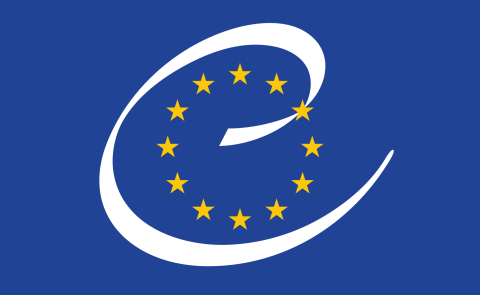
Armenia Strengthens Ties with Council of Europe
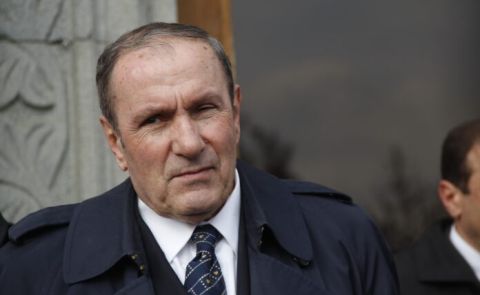
Former Armenian President Labels Pashinyan a Traitor and Blasphemer
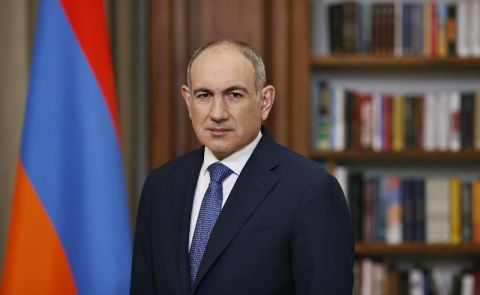
Pashinyan Addresses Key Issues on Church, National Future, and Fund Allegations
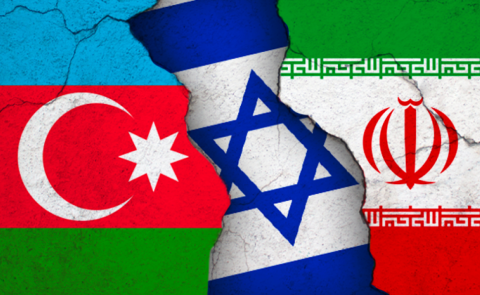
Azerbaijan Calls for 'Dialogue and Diplomatic Resolution' Between Israel and Iran
